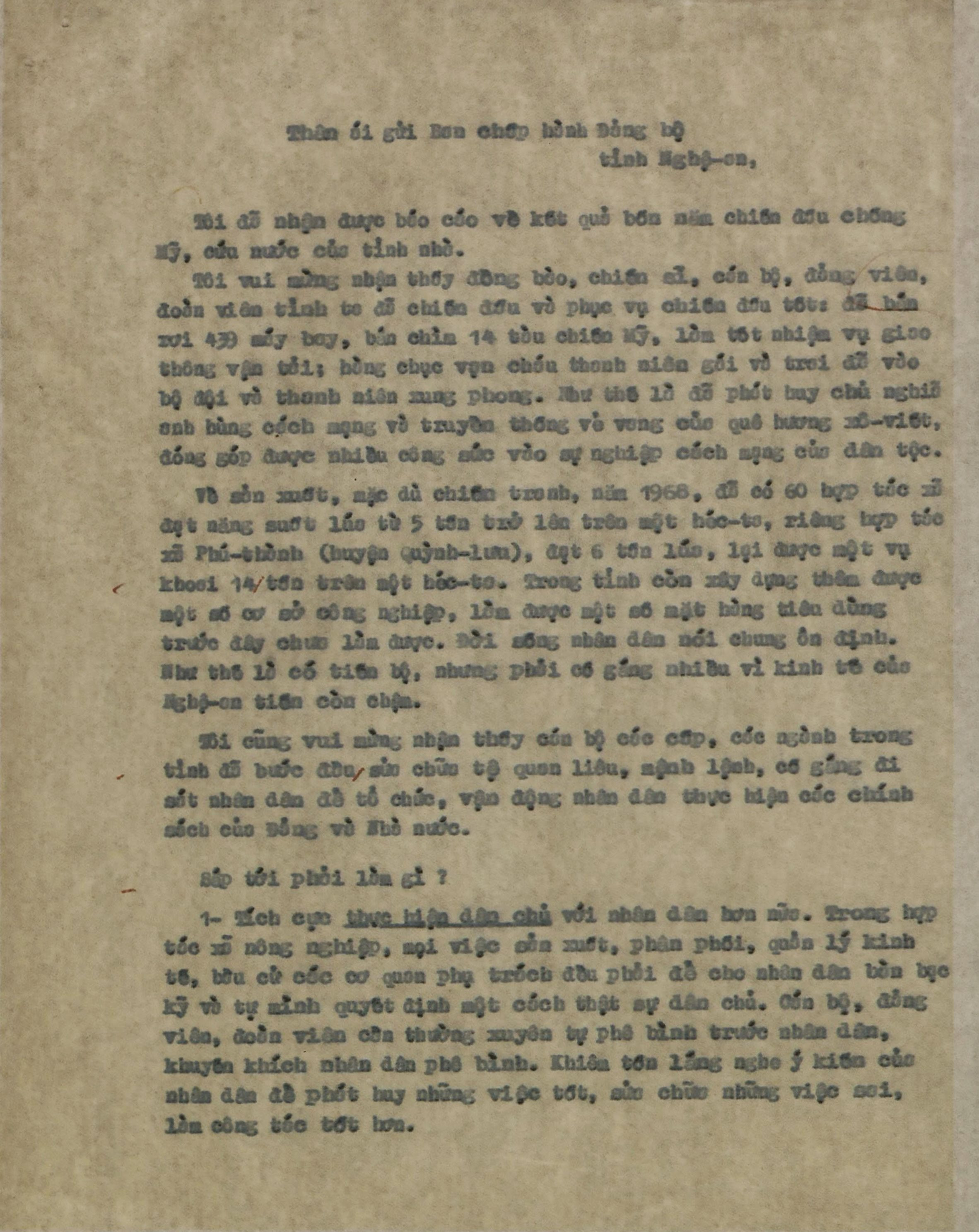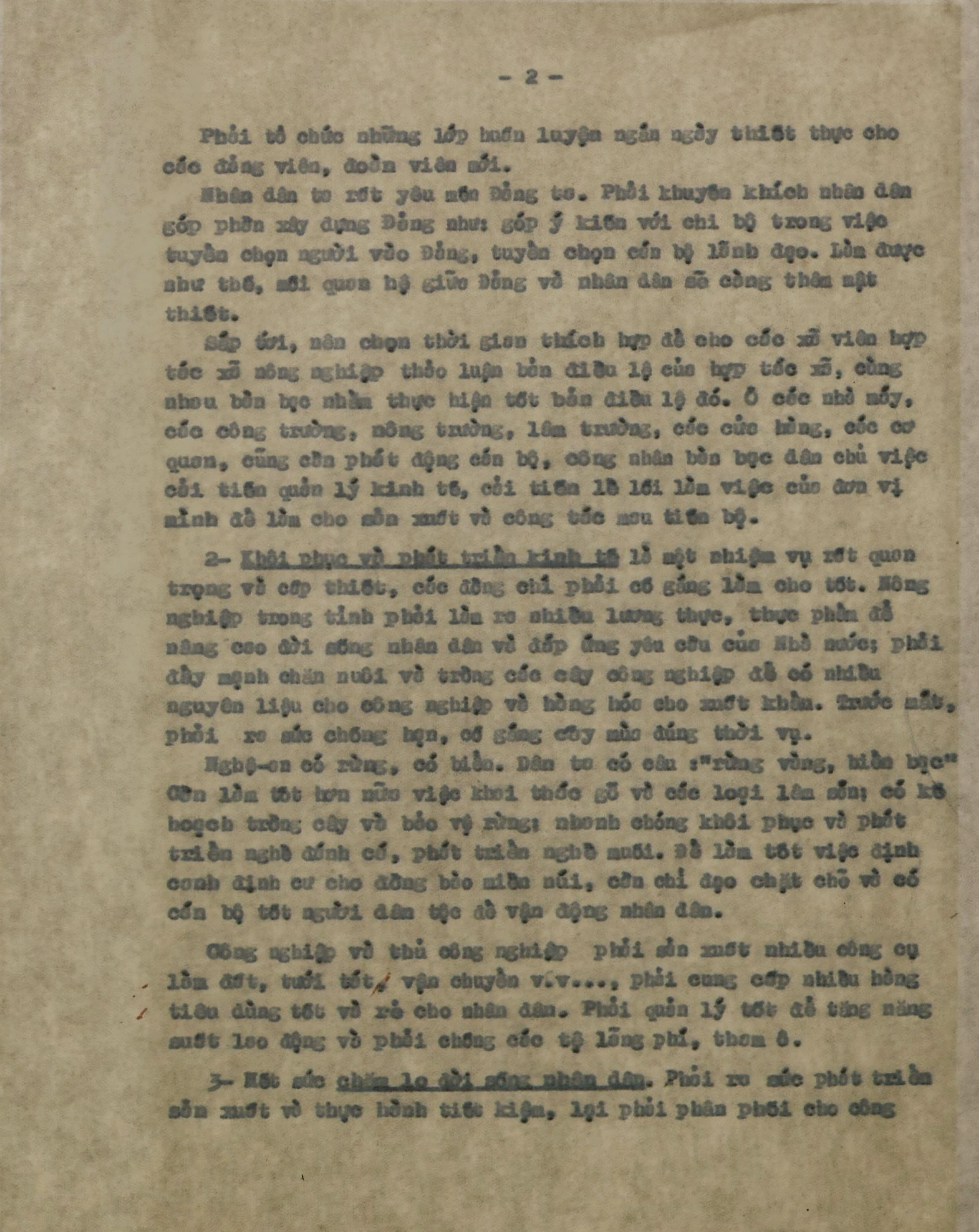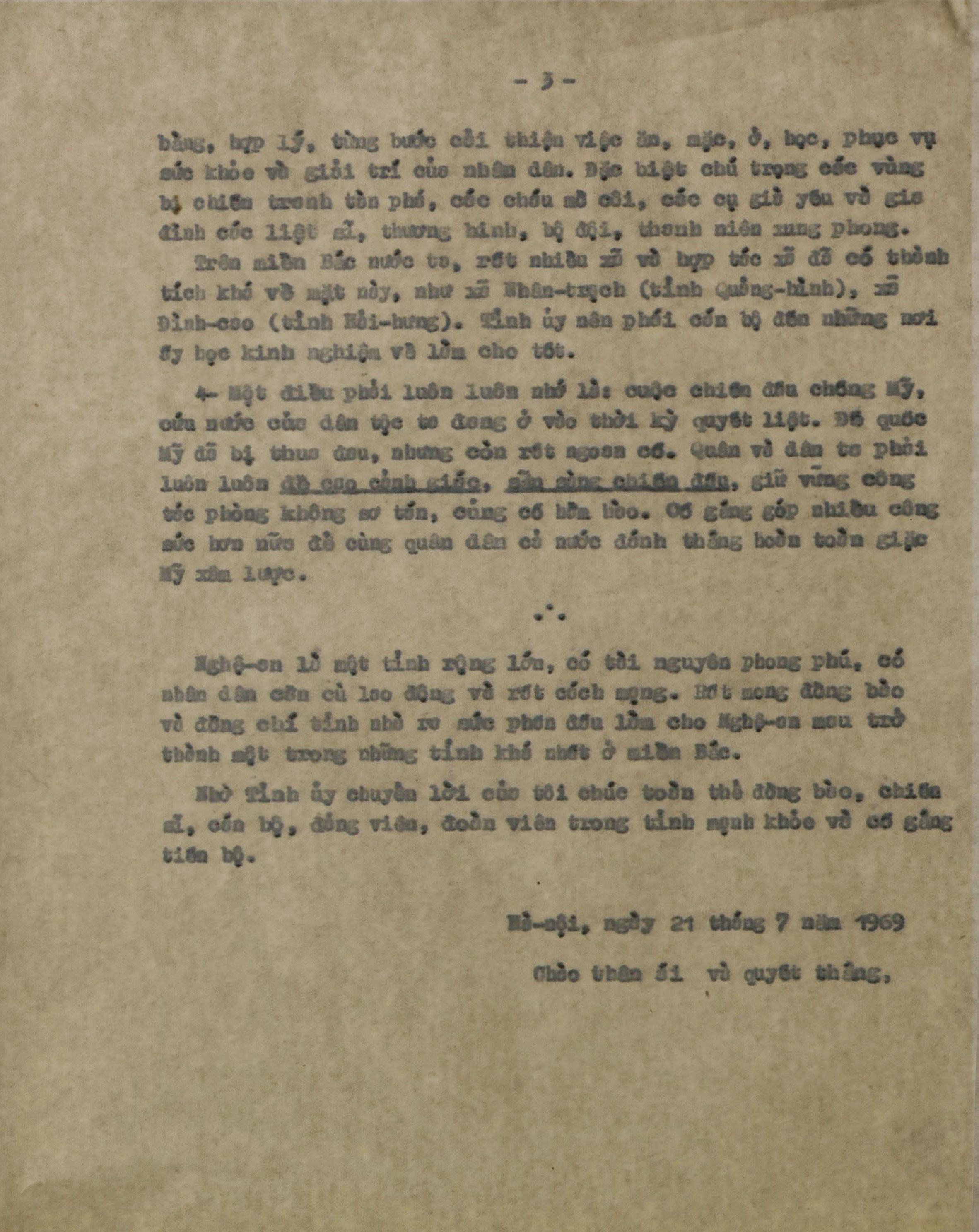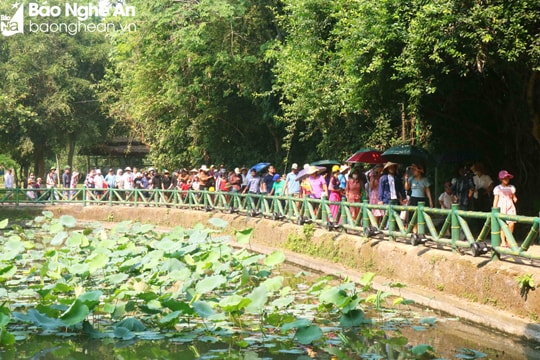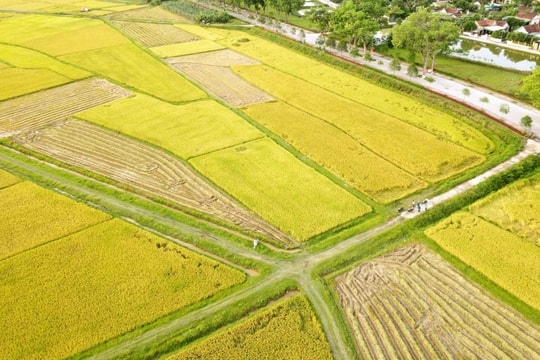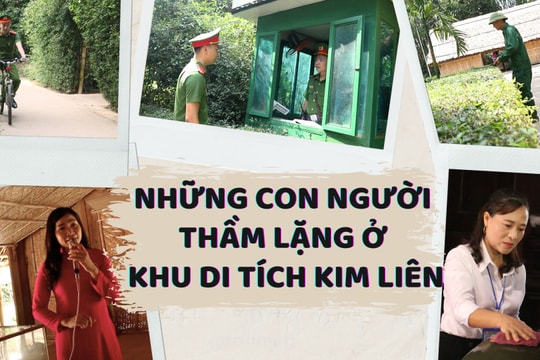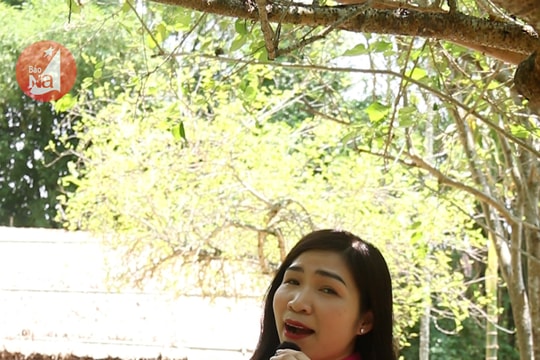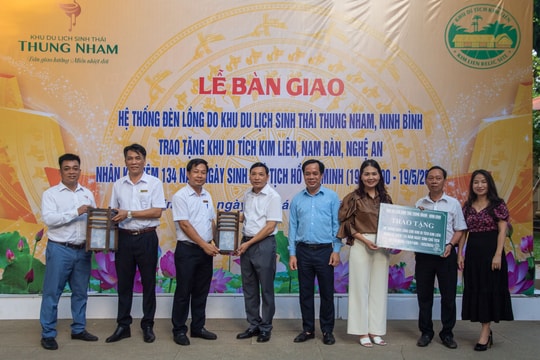Homeland in Uncle Ho's heart
His great homeland is the beloved Vietnam. In that sacred sentiment, Uncle also has a close homeland, the Sen village, Chua village, Kim Lien, Nam Dan, Nghe An.
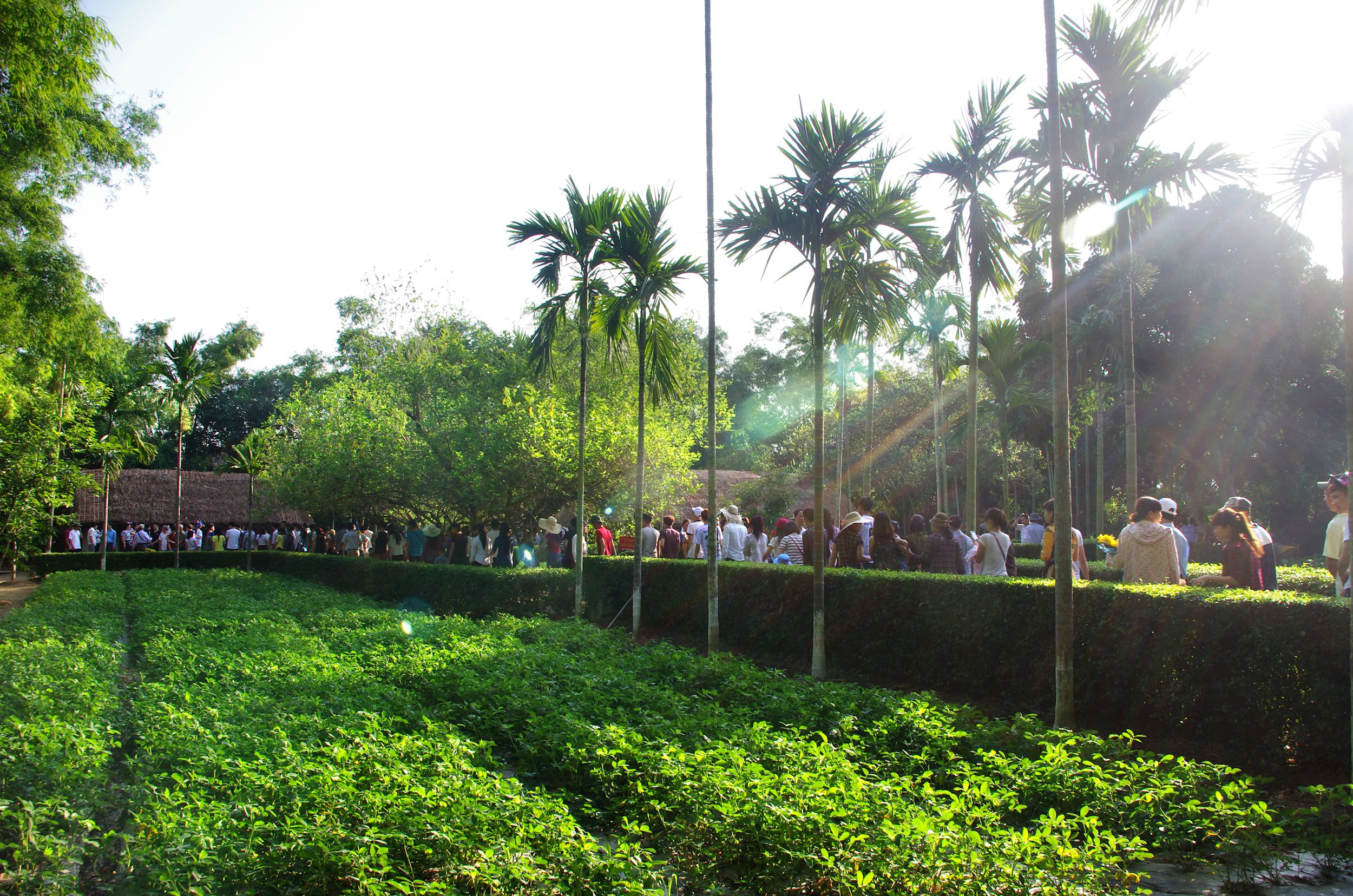
As the leader of the Party and the nation, Uncle Ho's homeland sentiment covers a wide range, has special features, surpassing the usual homeland sentiment. Here, the leader's personality is expressed and tested, consistent between the large homeland and the small homeland, between the common interests - the whole and the individual interests - the local, which are extremely diverse and complex. He has turned homeland sentiment into the strength of the great national spirit, the spirit of the times, creating a new moral sentiment - revolutionary morality.
"Homeland is a place of great love and affection."
Uncle Ho was nurtured with patriotism and love for the people by the painful plight of his fellow countrymen and thus, he struggled for 30 years away from the Fatherland to find a way to save the country. The love for the homeland did not stop at peaceful memories but also included the torment of fate, the scene of losing the country and home, a common plight of which Uncle Ho's family was a typical example.
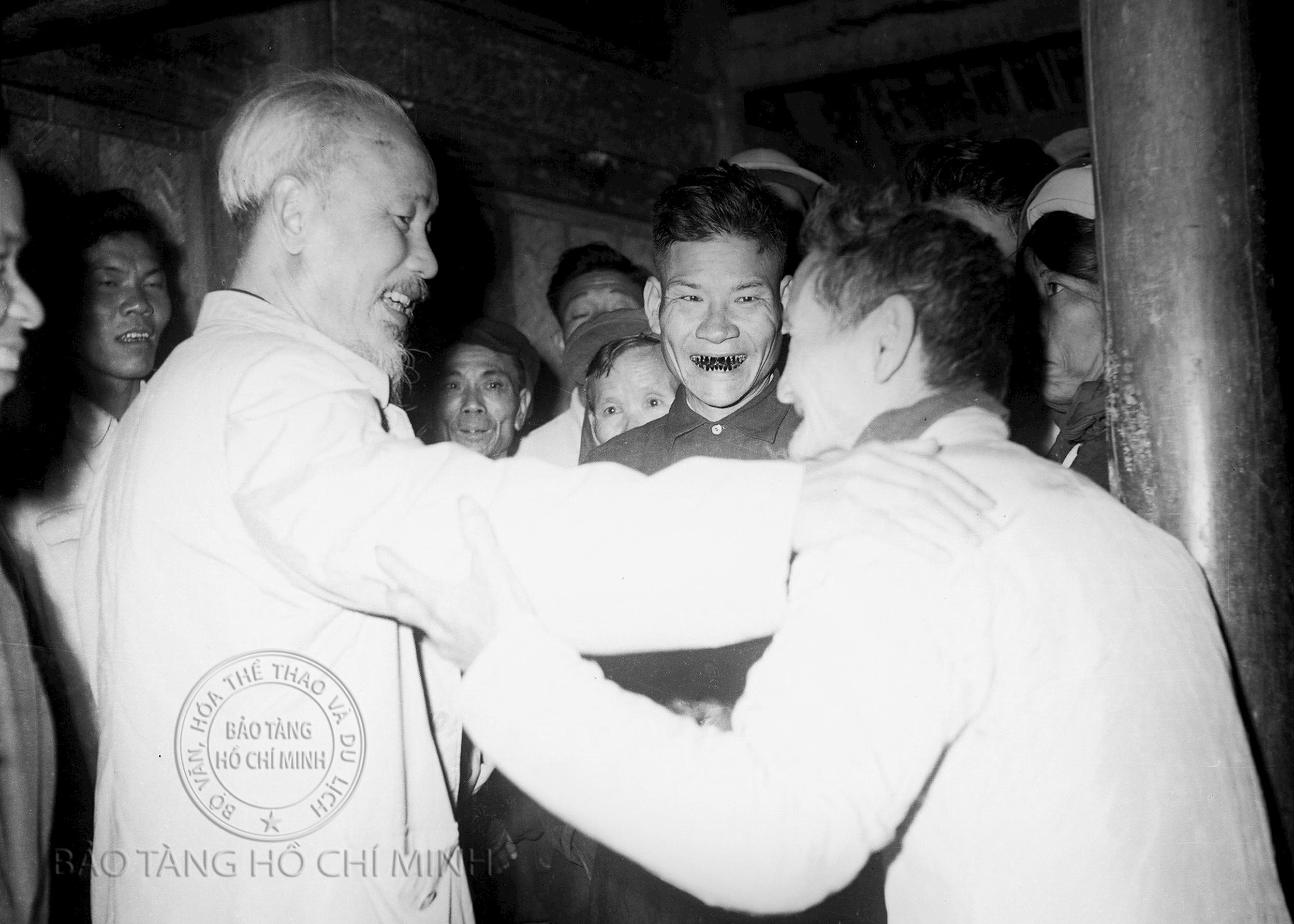
Therefore, the unique feature in Uncle Ho's love for his homeland is his admiration for a revolutionary homeland, a "red Nghe Tinh", the beautiful impression of his homeland is "Nghe Tinh is famous for its stubbornness" which includes the indomitable and resilient attitude of the people and his own pride for that homeland. Despite being busy with a thousand things, Uncle Ho always turned his heart, had warm feelings for his homeland "highly respected and affectionate", always attached to the revolutionary ideal, with the revolutionary goal of "independence, freedom, happiness".
But to do that, on his part, Uncle Ho saw the responsibility of building people's hearts, first of all the dedication of the leader. Dedication and care for the people is the "touchstone" for revolutionary soldiers, especially those with high positions in the Party and State apparatus. Faith will turn into a moral obligation, into the strength of self-awareness, dedication and sacrifice of millions of people, when they clearly see that the leader is the one who guides and belongs to them.
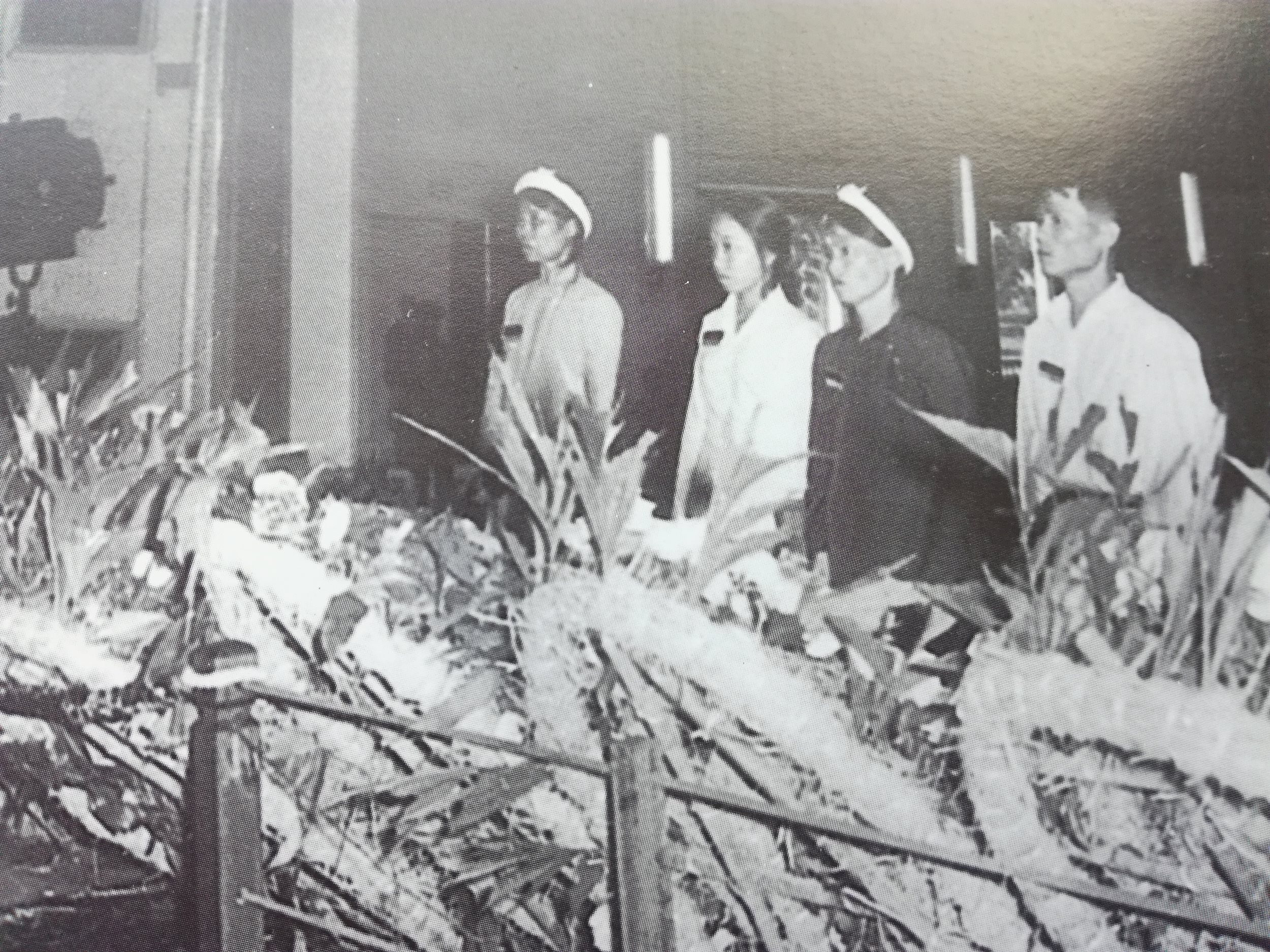
Uncle Ho himself, in any circumstance, always showed his dedication and care for the people, showing it first and foremost to his homeland. Throughout his revolutionary life, he respected the country and put aside family love, even though he knew how deep and profound family love was.
After more than 30 years of separation, it was not until after the August Revolution that Uncle Ho had the opportunity to meet his sister and brother again for a few dozen minutes. When his relatives passed away, he could not come back to pay his respects, so he wiped away his tears and wrote the words "I am sorry". "The highest sense of duty and love" placed in the ultimate sacrifice of family and personal interests to seek the interests of the country is also a beautiful traditional trait of the nation, but it is also rare to have special cases of "selflessness" like Uncle Ho. In the past, whenever a leader had contributed to the country and came to power, he rarely avoided putting his relatives in important positions to enjoy benefits and protect the longevity of supreme power.
Uncle Ho was completely different. He was not biased towards individuals or families because he had the strength of the "great solidarity" cause and took fairness and democracy as the starting point. His concern for his fellow countrymen was the care from the sacred rights of "an independent Fatherland" to the daily needs of "the people's happiness". Unlike what some people thought, "The leader only needs to speak, only needs to consider important and important matters", Uncle Ho often cared about and reminded the cadres in his home province about very specific things in the people's lives: toilets, wells, air defense bunkers, meals, sleep, trees along the road... He advised: along the road, you should plant royal poincianas, not longans, because if you plant longans, the children might fall and get crippled.
Also in the attitude of caring for the people, Uncle Ho not only used generosity to influence but also showed a deep understanding of the psychological characteristics of the people, attaching importance to praising and encouraging, aiming to make everyone turn towards good people and good deeds. From there, he built a spirit of harmony and friendship for the whole country. He said: "We must know that: everyone in this life has good and bad points. Using people is like using wood. A skillful craftsman can use large or small, straight or curved wood in the right place." He himself spent time reading and writing about good people, including many typical examples in Nghe Tinh. This is not only the art of using people but also comes from Uncle's deep compassion.
Implementing democracy with the people is the core issue of the work of building people's hearts that Uncle Ho used to care about, especially for his home province. "Power" has always been reserved for those in positions, but now for Uncle Ho, it must be reserved for the people in its full meaning. This is truly an extremely fierce revolution on the ideological and moral front, awareness and emotion, destroying the solid fortress of hundreds of thousands of years of feudal and colonial power. Therefore, only 15 days after the successful August Revolution, on September 17, 1945, Uncle Ho sent a letter to "comrades in the home province" noting four types of shortcomings that violated the people's right to mastery.
37 days before saying goodbye to us, Uncle Ho sent a letter to the provincial Party Committee, placing the top priority of the upcoming task as: "more actively implementing democracy with the people". The concept of "boss, boss" in Uncle Ho's words is the cooperative members that the board of directors must serve wholeheartedly, not "pointing fingers". Training the young generation to take on the responsibility of managing the country is also a content of implementing democracy.
Returning to his homeland with a revolutionary tradition, Uncle Ho sincerely criticized the "father-to-son" mentality of enjoying life and the fear of "the bamboo shoots growing too tall". He confided: "The Party also needs many young cadres to do the things that old party members cannot do". He wanted old party members to be exemplary and guide young cadres. All is "for the people" because he considers the people to be paramount.
The truth that has been said since ancient times “people are precious”, “humanity is based on people’s peace” only echoed for a moment then faded away, buried in the harshness of time and endless desires, now respectfully placed by Uncle Ho in the top position with scientific and ethical meaning. The “people-friendly” viewpoint has also existed for a long time, yet the distance between the emperor and his subjects is still thousands of miles. Since the middle of the 20th century, in Vietnam, a title of address “Bac” has appeared with a new meaning: Uncle Ho, the national relationship is harmonious in the kinship relationship, has the effect of tightening the bond: country with home, home with country, the high leadership position becomes sacred, close, intimate.
Obviously, the love for the homeland is no longer limited to a single region but has become a common love for the whole country, using the strength of the homeland to enrich the whole country and using the wealth of the whole country as strength to reach the homeland. That is why Uncle Ho's love for the homeland has aroused the beauty in the traditional qualities of the nation such as respect for affection, love for simplicity, honesty... Therefore, all Vietnamese people, no matter where they are, feel that Uncle Ho is a person of their homeland because he has fostered the quintessence of all regions to raise Vietnam to a new level. A foreign scholar said very correctly: "In my understanding, Ho Chi Minh is Uncle Ho, the prophet of the Fatherland, with the idea that he is a guide".
Promoting the identity of the origin
From the time he left his homeland in 1906 to the year he returned to visit his homeland in 1957, it was exactly 50 years. Over those 50 years, Uncle Ho had lived and traveled through many strange lands, yet he still had the strong character of a Nghe An native: living sincerely, simply, sometimes with a bit of witty humor... In the past, in high positions, people often showed solemnity and majesty to distinguish between high and low, noble and humble. Uncle Ho was completely different. His pure and simple life touched all Vietnamese people and international friends.
.jpg)
There are many characteristics of Nghe An people that Uncle Ho cherished and preserved every day: wearing a brown outfit, wearing simple rubber sandals, liking dishes with the taste of his hometown, saving time to grow vegetables, raising fish... That lifestyle originated from familiar family customs, that lifestyle also originated from revolutionary philosophy: a revolutionary cannot live a life far away from the people. There is something worth thinking about: Uncle had been exposed to European and American civilizations a lot, but why did he still return to the old style? Could it be that there was something like conservatism? That can only be explained by a point of view, an attitude towards the origin. There, there is something suitable for rustic life, there is something comfortable, natural, has a mass style, easy to approach with everyone. More importantly, it is the training to always be close to the people and to educate cadres and party members not to be far away from their roots. That is a life perspective, a political and aesthetic ideology that aims to preserve the quintessence of our ancestors. Uncle Ho also absorbed the modern features of the times in behavior and communication, taking human beauty as the center; he could not return to the old, outdated things, nor could he imitate the vulgar dressing and drunkenness of the bourgeoisie. For a poor country that had to fight against constant enemies and harsh natural disasters, there was only one path, one way: simple but pure. Uncle Ho chose that path, that root. Uncle Ho's simple lifestyle drawn from the source was truly of great significance in educating and improving the revolutionary morality of our people.
Some people also wondered: Was Uncle Ho influenced by the "asceticism" of religions, or the tolerant lifestyle of Nghe An farmers?
We all know: Uncle Ho was a man with a rich soul, optimistic, always loved life and loved people. That is why he devoted himself to the revolution, with "The ultimate desire is to make our country completely independent, our people completely free, everyone has food to eat, clothes to wear, and education.He cared about improving the material and spiritual life of all people, refusing to bow down to any brutal force. That attitude was completely different from the "ascetic" philosophy of religion.
Uncle Ho's simple and pure life aims to preserve good social morality, and cannot let selfish desires degrade people's hearts.
Uncle Ho himself said: "Everyone wants to eat well and dress well, but it must be at the right time and in the right circumstances. While the people are still in need, someone who wants to enjoy delicious food and dress well for himself is immoral.”. So it can also be said: Uncle Ho adopted a frugal lifestyle, got used to enduring the difficulties and deprivations of his fellow countrymen, but he reached higher and further in his wisdom to find the right path to overcome, to win a better life.
Uncle Ho was a revolutionary and a famous poet. He had a very clear view of beauty: what is beautiful must include something useful. He advised that in his garden in Lang Sen, only sweet potato and bean flowers should be grown. Knowing that in his commune, along the road there was still space, Uncle gave a package of royal poinciana seeds to plant, so that people could have shade and see beautiful flowers... That is the beauty of the people of Nghe An who love reality and are full of humanity.
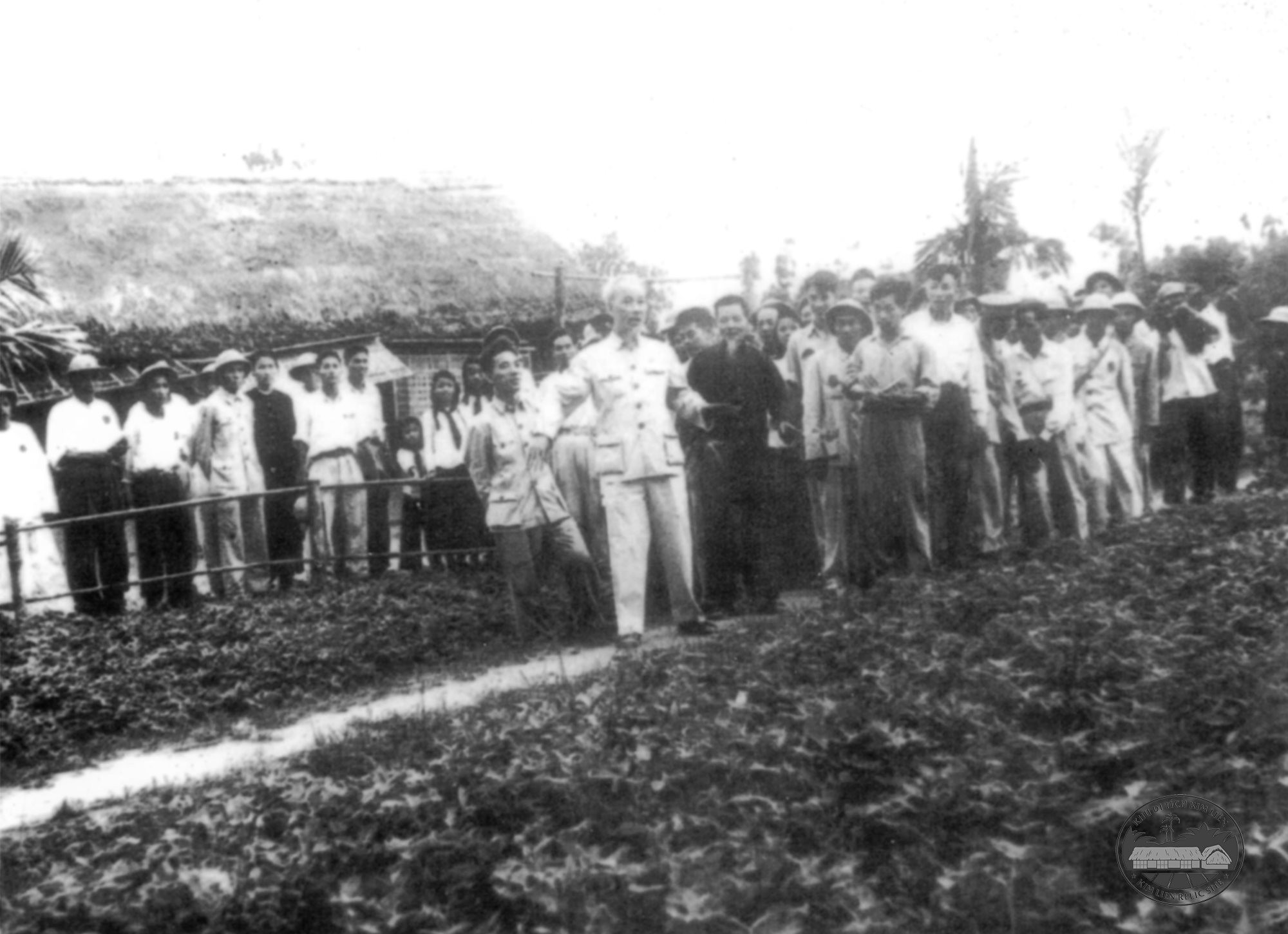
Even though he had been away from his homeland for many years, even though he had been exposed to the cultures of many Eastern and Western countries, Uncle Ho still knew the Tale of Kieu. He remembered exactly every sentence, every word in some old songs and told his children to sing correctly, to understand the true feelings of their ancestors.
Sometimes at a large meeting, Uncle Ho said, "Nghe An choa's house"As real as it is joking: listeners from all over the country were deeply moved because Uncle Ho - the Leader had incarnated in Uncle Ho - the citizen of the village, of the commune, of the country of Vietnam.
Uncle Ho is an exemplary man of Vietnam, of humanity, whose homeland Nghe An has contributed to forging a heart and demeanor. He again attracts all the beauty of the nation, of humanity to enhance the identity of the origin in short, easy-to-understand, profound sentences, in the way of treating people imbued with affection, exploiting all talents in the work of defending and building the country... The "moral" yeast of the masses for generations combined with communist humanism has built a typical Ho Chi Minh, who has attracted the conscience and feelings of hundreds of millions of people on earth.
In the changes of human history, between light and darkness, sometimes here and there still communicate, blurred, Uncle Ho has fully expressed the personality of a revolutionary leader, as a model of the century. That is: The correct political ideal is like a deep and lasting root, clinging to the sacred soil, nurturing; The noble dedication is like a tree trunk supporting, protecting, shouldering, caring for hundreds of fresh branches, sprouting, budding; Turning to the source to flower and bear fruit, then the flowers and fruits fall back to the root. The love for the homeland is the solid foundation for the tall, green tree to grow well, spreading shade.
Uncle Ho was a big tree, giving us such shade.

